Undertale, la sensación indie que ha generado más fan art porno sobre esqueletos que toda la obra de Tim Burton, aparecerá en Nintendo Switch en septiembre de 2018. Originalmente apareció en 2015 con un hype impresionante y alabanzas bastante exageradas, seguido de un backlash igualmente exagerado y muchos insultos a los fans por ser escandalosos y tóxicos. El internet vuelve todo una hipérbole, ¿verdad?
Pude jugar Undertale ignorando todo lo anterior (ayudó mucho que lo jugué en diciembre del año pasado, con todo hype ya diluido) y creo entender por qué este jueguito levanta tantas pasiones. Undertale tiene bastantes puntos de interés, con sus defectos como todo, pero también con mucho a su favor.
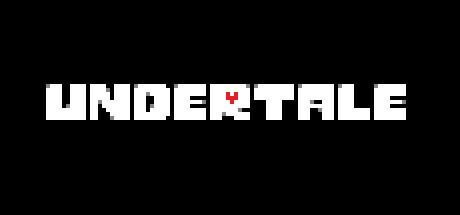
El primer elemento que destaca para mí es su accesibilidad. Sí, jugar Undertale es muy fácil de entender y jugar para todo tipo de público y no solo para veteranos del género, pero no solo me refiero a eso. En la época en que jugar en PC es sinónimo de especificaciones técnicas impresionantes, equipos carísimos y una obsesión enfermiza con los cuadros por segundo, Undertale es tan simple que puede jugarse en prácticamente cualquier computadora. Esto garantiza un público muy amplio y variado. En un medio con una fama de ser agresivo y elitista, esta accesibilidad no es poca cosa. Por eso hay tanta pasión adolescente: es el primer rpg de muchos.
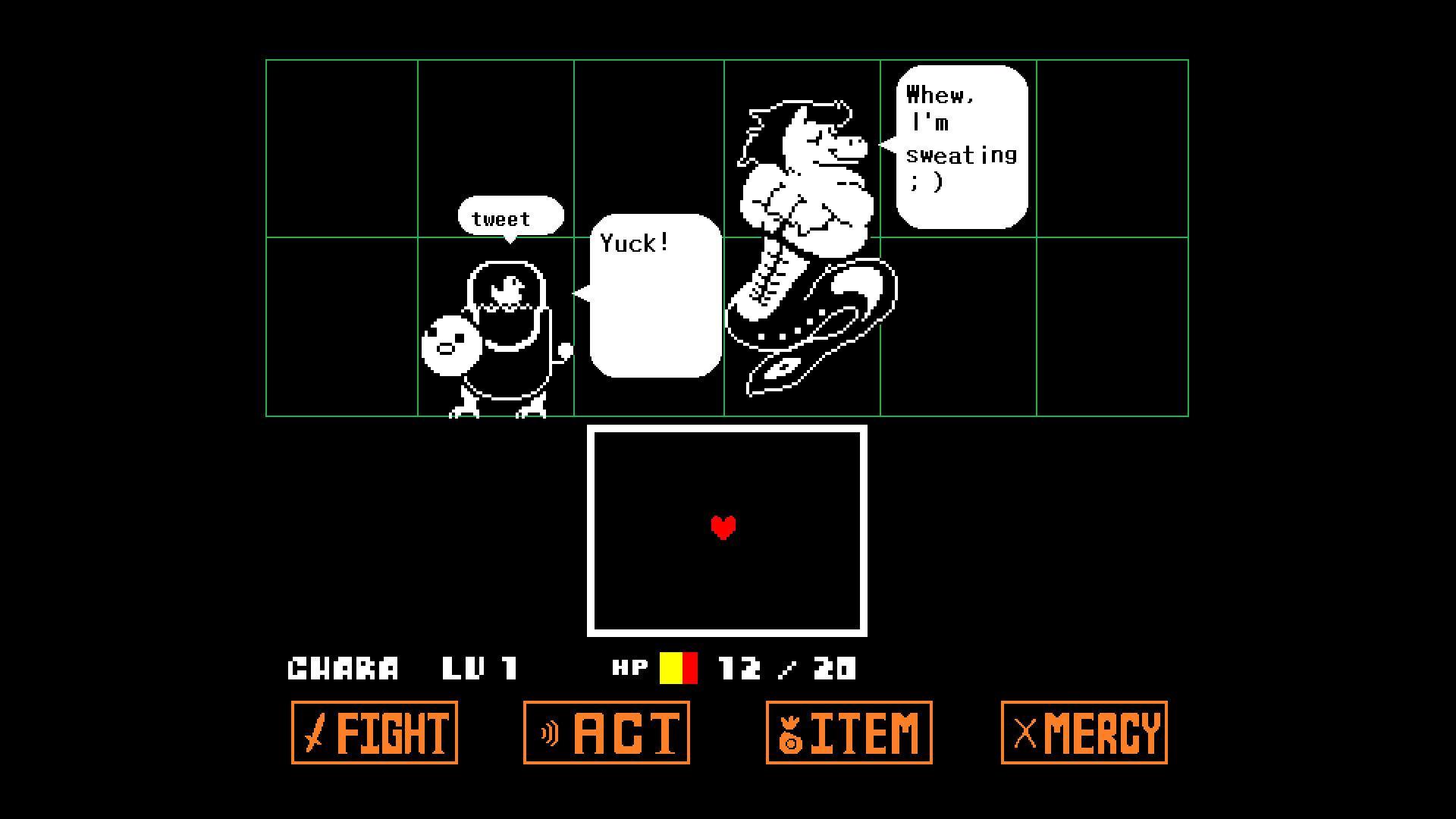
Undertale se promociona como "un rpg donde no tienes que matar a nadie". Y es cierto: aunque hay peleas por turnos en el estilo de la saga Dragon Quest, está la opción de matar a tus enemigos o resolver el conflicto de forma pacífica. Tu desempeño al respecto determina el curso de la historia y el final del juego.
Esto, admitámoslo, no es realmente tan novedoso o ground breaking como se quiere hacer creer. Los juegos con múltiples finales y decisiones morales llevan décadas existiendo y la versión de estos conceptos en Undertale están demasiado simplificada. No es como que la solución pacífica de las peleas implique tener conversaciones o hacer uso de diplomacia: solo basta seleccionar los comandos "act" en lugar de "fight", esquivar las balas que disparan a tu corazón, y continuar probando las opciones hasta que el nombre del personaje se pone en amarillo y puedas usar "mercy" para terminar la pelea sin muertes. No considero esto como un defecto del juego (de hecho es parte de la accesibilidad que mencionaba antes), pero creo que es importante señalarlo para no hacer falsas expectativas.
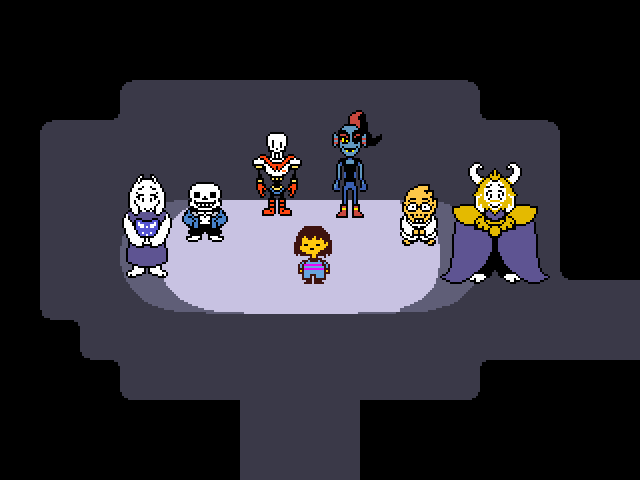
Eso sí, lo que pudiera faltarle sobre complejidad u originalidad, Undertale lo suple con personalidad y con creces. Si algo logró exitosamente Toby Fox (creador del juego) es lograr que cada personaje se sienta completo, sin importar que sea un enemigo que encuentras una sola vez o un personaje no jugable. Pocas veces me he visto tan interesado en hablar con todos los personajes de un rprg como aquí, con todo y el riesgo de ser bombardeado con juegos de palabras muy lelos. Todo está lleno de humor (muy en la línea de la cultura del meme, si es tu hit), pero no exento de momentos dramáticos. Y melodramáticos, pero no sería un rpg sin eso.
¿Lo mejor del juego? Los personajes, la construcción del mundo, el comentario meta (goeeey) sobre las convenciones de los rpgs. Hay representación LGBTQ y sí, el medio de los videojuegos todavía está en pañales en eso y la vara está muy baja, pero considero que aquí hay un pequeño escalón en la dirección correcta. (Si usted usa palabras como "gamer gate" "SJW" o "white savior", largo de mis reseñas).
El soundtrack es una mezcla de chip tunes de ocho bits, mezcla de música clásica tradicional y está increíble. Lo hizo el mismo Toby Fox y se ve que le puso el mismo cuidado y atención que a la historia. Se agradece.
Tengo un nitpick: no me parece que el pixel art de este juego sea de lo mejor. Entiendo que va por el estilo sencillo de la serie Earthbound, pero no es muy consistente. Cuando se ve bien, se ve como un gran juego de Super Nintendo. Cuando se ve mal, parece un dibujo mío en MS Paint.
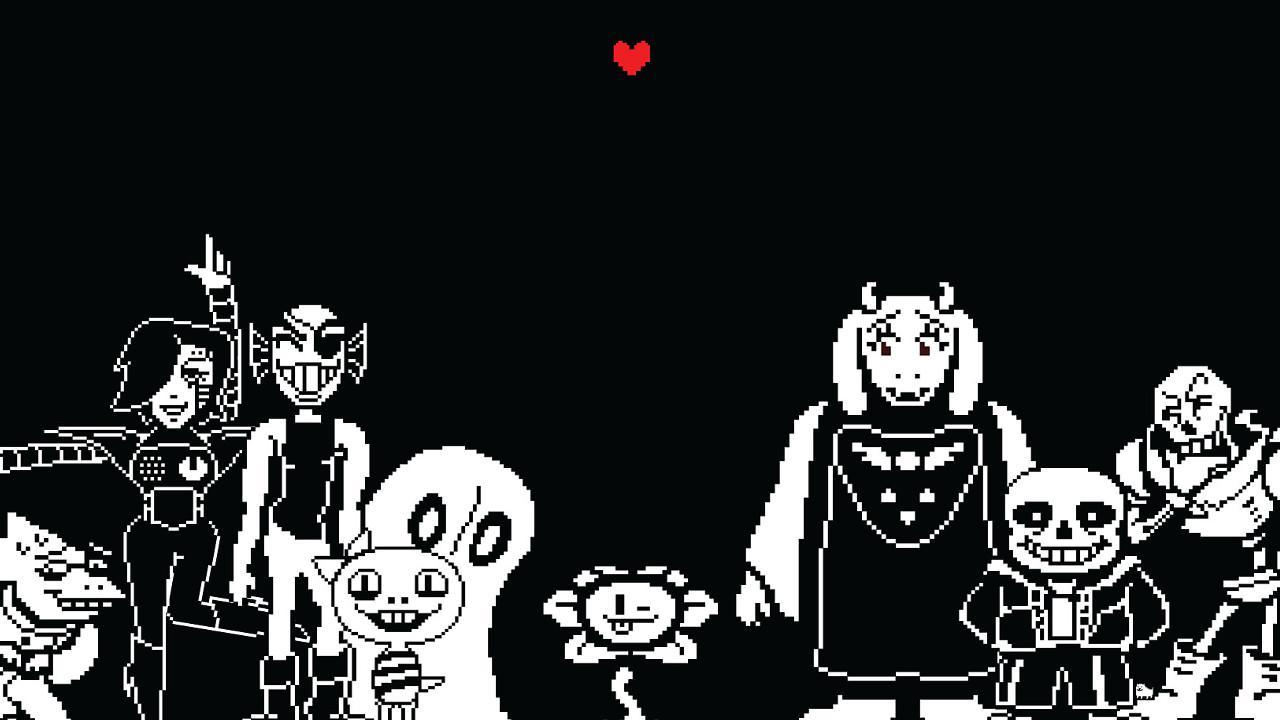
Hay momentos en los que parece que el juego te está regañando. No les quiero spoilerear mucho, pero si van por la ruta "genocida", van a pasar un mal rato. No solo el juego se vuelve exponencialmente más difícil, sino que cierto personaje no perderá la oportunidad de decirte lo mala, mala persona que estás siendo. Recomiendo no tomarse en serio este elemento del juego, pero si dices "fuchi, culpa católica", no te culpo.
¿Vale la pena jugar Undertale en 2018? Pienso que sí. He visto a muchos acercarse a este juego esperando un EarthBound o un Final Fantasy VI y creo que es totalemente erróneo. En el peor de los casos es un interesante playtrough, en el mejor es la inspiración para tus fan fictions más oscuros. No hay pierde.
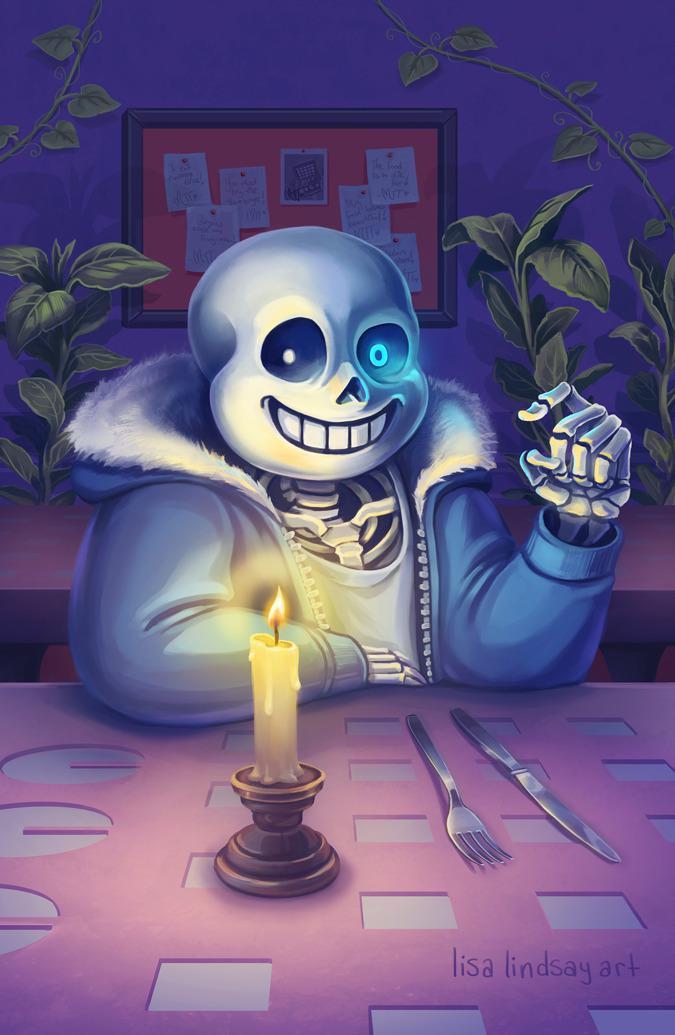
Pude jugar Undertale ignorando todo lo anterior (ayudó mucho que lo jugué en diciembre del año pasado, con todo hype ya diluido) y creo entender por qué este jueguito levanta tantas pasiones. Undertale tiene bastantes puntos de interés, con sus defectos como todo, pero también con mucho a su favor.

El primer elemento que destaca para mí es su accesibilidad. Sí, jugar Undertale es muy fácil de entender y jugar para todo tipo de público y no solo para veteranos del género, pero no solo me refiero a eso. En la época en que jugar en PC es sinónimo de especificaciones técnicas impresionantes, equipos carísimos y una obsesión enfermiza con los cuadros por segundo, Undertale es tan simple que puede jugarse en prácticamente cualquier computadora. Esto garantiza un público muy amplio y variado. En un medio con una fama de ser agresivo y elitista, esta accesibilidad no es poca cosa. Por eso hay tanta pasión adolescente: es el primer rpg de muchos.

Undertale se promociona como "un rpg donde no tienes que matar a nadie". Y es cierto: aunque hay peleas por turnos en el estilo de la saga Dragon Quest, está la opción de matar a tus enemigos o resolver el conflicto de forma pacífica. Tu desempeño al respecto determina el curso de la historia y el final del juego.
Esto, admitámoslo, no es realmente tan novedoso o ground breaking como se quiere hacer creer. Los juegos con múltiples finales y decisiones morales llevan décadas existiendo y la versión de estos conceptos en Undertale están demasiado simplificada. No es como que la solución pacífica de las peleas implique tener conversaciones o hacer uso de diplomacia: solo basta seleccionar los comandos "act" en lugar de "fight", esquivar las balas que disparan a tu corazón, y continuar probando las opciones hasta que el nombre del personaje se pone en amarillo y puedas usar "mercy" para terminar la pelea sin muertes. No considero esto como un defecto del juego (de hecho es parte de la accesibilidad que mencionaba antes), pero creo que es importante señalarlo para no hacer falsas expectativas.

Eso sí, lo que pudiera faltarle sobre complejidad u originalidad, Undertale lo suple con personalidad y con creces. Si algo logró exitosamente Toby Fox (creador del juego) es lograr que cada personaje se sienta completo, sin importar que sea un enemigo que encuentras una sola vez o un personaje no jugable. Pocas veces me he visto tan interesado en hablar con todos los personajes de un rprg como aquí, con todo y el riesgo de ser bombardeado con juegos de palabras muy lelos. Todo está lleno de humor (muy en la línea de la cultura del meme, si es tu hit), pero no exento de momentos dramáticos. Y melodramáticos, pero no sería un rpg sin eso.
¿Lo mejor del juego? Los personajes, la construcción del mundo, el comentario meta (goeeey) sobre las convenciones de los rpgs. Hay representación LGBTQ y sí, el medio de los videojuegos todavía está en pañales en eso y la vara está muy baja, pero considero que aquí hay un pequeño escalón en la dirección correcta. (Si usted usa palabras como "gamer gate" "SJW" o "white savior", largo de mis reseñas).
El soundtrack es una mezcla de chip tunes de ocho bits, mezcla de música clásica tradicional y está increíble. Lo hizo el mismo Toby Fox y se ve que le puso el mismo cuidado y atención que a la historia. Se agradece.
Tengo un nitpick: no me parece que el pixel art de este juego sea de lo mejor. Entiendo que va por el estilo sencillo de la serie Earthbound, pero no es muy consistente. Cuando se ve bien, se ve como un gran juego de Super Nintendo. Cuando se ve mal, parece un dibujo mío en MS Paint.

Hay momentos en los que parece que el juego te está regañando. No les quiero spoilerear mucho, pero si van por la ruta "genocida", van a pasar un mal rato. No solo el juego se vuelve exponencialmente más difícil, sino que cierto personaje no perderá la oportunidad de decirte lo mala, mala persona que estás siendo. Recomiendo no tomarse en serio este elemento del juego, pero si dices "fuchi, culpa católica", no te culpo.
¿Vale la pena jugar Undertale en 2018? Pienso que sí. He visto a muchos acercarse a este juego esperando un EarthBound o un Final Fantasy VI y creo que es totalemente erróneo. En el peor de los casos es un interesante playtrough, en el mejor es la inspiración para tus fan fictions más oscuros. No hay pierde.

Other reviews22
i've finished true pacifist, neutral and attempted genocide. i love the unique characters, the pixel art style of the game and how the storyline was told. music was bomb too
«That ending!»
«Beaten more than once»
I’ve heard this game is great and the review scores are very high so before it left gamepass I thought I’d give it a shot. I played about an hour before deciding it’s really boring. It does seem clever with its anti-violence message. That’s obviously why it got so many good scores. But I didn’t want to spend anymore time playing so I looked up what happened. I’m happy I didn’t play anymore. I wouldn’t have liked it.
so thankful that i played it within the two weeks it was first released lol
«Blew my mind»
«Liked before it became a hit»
Undertale is an experience like no other. Unfortunately, the internet has a bad reputation for making this game both look bad and spoiling some of the highlights. but if you have not been spoiled, please stop reading reviews on this game and go and play It for yourself.
«That ending!»
«Beaten more than once»
this game is responsible for everything from my friend group, my taste in women, my taste in music, and why im instinctively a cyberbully.
«That ending!»
«Beaten more than once»
Overall: 4/10
Gameplay: 3/10
Story: 5/10
Music: 7/10
TLDR: Undertale is a massively overhyped game. The story is far less innovative than people say, relying on cheap hat tricks instead of making you (or the writers) put in any real emotional labor. Its philosophy is simple, and better told by other games. The gameplay itself is boring, involves largely walking around and memorizing patterns, and it has little replay value. Do not recommend.
I thought I knew what overhyped meant, and then I played Undertale. It's a game that is best left in the 2010s, and is wrought with cheap story tricks to feign philosophical deepness. But I suppose that should be no surprise, coming from a person who's start was on the Homestuck team. Let's start with the mechanics. The gameplay is absolutely horrible. It's rarely fun, and when it is it's because of cheap story tricks that keep you engaged in SPITE of the underlying mechanics still being awful. The game's core challenges revolve around mastering a particular set of button presses for different characters and allow for none of your own innovation in playstyle. If you don't do it the intended way, you can't do it at all. It comes down to rote memorization of the different challenges. If you liked Guitar Hero, perhaps you'll enjoy this, but if you were hoping for interesting puzzles, any modicum of strategy, or gameplay that doesn't get stale after the first 30 minutes, you're better of looking elsewhere. Even the graphics feel uninteresting and lazy. There were better looking 16-bit games released in the 90s, and it feels like the designer tried to use the "artsy-indie-game" card as an excuse for shitty visuals.
(No spoilers here, don't worry.) Now let's talk about where the game gets, supposedly, interesting: the story. Many people take it to be revelatory in its meta-narrative, and in the twists and turns it throws at you. Yes, there are moments that deviate from what the typical hero's journey would have you expect. You are able to be consequential choices that impact the way characters relate to you later in the game. But the consequences feel hollow, and the plot could have been written by a middle-schooler who just watched The Matrix or Inception for the first time. I've seen some reviewers discuss the way it is meant to be a commentary on games, gaming, and gamer culture. They talk about the beautiful simplicity of the twists, the way in which you are supposed to identify with certain characters and be emotionally wrenched around by what you uncover so that you question your own choices and identities as a gamer. This couldn't be further from reality. The characters are never fleshed out enough to make you feel any attachment, and any interesting philosophical observations the game might hold about the relation of the player to a game's narrative and characters was told better, more succinctly, and with profoundly more gravitas in the Stanley Parable... four years earlier.
SPOILERS IN THIS PARAGRAPH: This sentence is to make sure you don't accidentally spoil something for yourself. Read on now. The character that you are supposed to feel the most connection to, Toriel, your 'mother' of sorts, is from the beginning obviously going to be the emotional wrenching point. But even in this respect, they fail to make the stakes feel high enough, and her character complexity falls flat when it comes time to really make it shine. The whole thing with the pacifist/genocide/normal routes is, once again, a cheap trick. It doesn't buy the game any more replayability, and although some of the dialogue is different, it still feels like you are playing the same game a second and third time to no avail. Any moral lesson that one could pretend to glean from it either isn't actually as innovative as the fanbase likes to think (it has all been done by many another game, including the pacifist-option idea) OR is, once again, philosophically uninteresting. Flowey being evil is the most predictable twist, the meta-narrative of the game quitting itself is, while a clever trick, exactly that: a trick. It adds quite little to the lackluster story, which tries to convince you it has deep meaning by appealing to the most rudimentary storytelling devices.
Overall, terrible game. While I won't discourage playing it for everyone, it is certainly not as universally lovable as it may seem from the discourse around it. It is at best a mediocre experiment in simple storytelling that should be left forgotten in the "used games" pile at your local Gamestop.
Gameplay: 3/10
Story: 5/10
Music: 7/10
TLDR: Undertale is a massively overhyped game. The story is far less innovative than people say, relying on cheap hat tricks instead of making you (or the writers) put in any real emotional labor. Its philosophy is simple, and better told by other games. The gameplay itself is boring, involves largely walking around and memorizing patterns, and it has little replay value. Do not recommend.
I thought I knew what overhyped meant, and then I played Undertale. It's a game that is best left in the 2010s, and is wrought with cheap story tricks to feign philosophical deepness. But I suppose that should be no surprise, coming from a person who's start was on the Homestuck team. Let's start with the mechanics. The gameplay is absolutely horrible. It's rarely fun, and when it is it's because of cheap story tricks that keep you engaged in SPITE of the underlying mechanics still being awful. The game's core challenges revolve around mastering a particular set of button presses for different characters and allow for none of your own innovation in playstyle. If you don't do it the intended way, you can't do it at all. It comes down to rote memorization of the different challenges. If you liked Guitar Hero, perhaps you'll enjoy this, but if you were hoping for interesting puzzles, any modicum of strategy, or gameplay that doesn't get stale after the first 30 minutes, you're better of looking elsewhere. Even the graphics feel uninteresting and lazy. There were better looking 16-bit games released in the 90s, and it feels like the designer tried to use the "artsy-indie-game" card as an excuse for shitty visuals.
(No spoilers here, don't worry.) Now let's talk about where the game gets, supposedly, interesting: the story. Many people take it to be revelatory in its meta-narrative, and in the twists and turns it throws at you. Yes, there are moments that deviate from what the typical hero's journey would have you expect. You are able to be consequential choices that impact the way characters relate to you later in the game. But the consequences feel hollow, and the plot could have been written by a middle-schooler who just watched The Matrix or Inception for the first time. I've seen some reviewers discuss the way it is meant to be a commentary on games, gaming, and gamer culture. They talk about the beautiful simplicity of the twists, the way in which you are supposed to identify with certain characters and be emotionally wrenched around by what you uncover so that you question your own choices and identities as a gamer. This couldn't be further from reality. The characters are never fleshed out enough to make you feel any attachment, and any interesting philosophical observations the game might hold about the relation of the player to a game's narrative and characters was told better, more succinctly, and with profoundly more gravitas in the Stanley Parable... four years earlier.
SPOILERS IN THIS PARAGRAPH: This sentence is to make sure you don't accidentally spoil something for yourself. Read on now. The character that you are supposed to feel the most connection to, Toriel, your 'mother' of sorts, is from the beginning obviously going to be the emotional wrenching point. But even in this respect, they fail to make the stakes feel high enough, and her character complexity falls flat when it comes time to really make it shine. The whole thing with the pacifist/genocide/normal routes is, once again, a cheap trick. It doesn't buy the game any more replayability, and although some of the dialogue is different, it still feels like you are playing the same game a second and third time to no avail. Any moral lesson that one could pretend to glean from it either isn't actually as innovative as the fanbase likes to think (it has all been done by many another game, including the pacifist-option idea) OR is, once again, philosophically uninteresting. Flowey being evil is the most predictable twist, the meta-narrative of the game quitting itself is, while a clever trick, exactly that: a trick. It adds quite little to the lackluster story, which tries to convince you it has deep meaning by appealing to the most rudimentary storytelling devices.
Overall, terrible game. While I won't discourage playing it for everyone, it is certainly not as universally lovable as it may seem from the discourse around it. It is at best a mediocre experiment in simple storytelling that should be left forgotten in the "used games" pile at your local Gamestop.
«Waste of time»
«Boooring»
Whether you like the fandom or not, you should still play this game. It's one of the most emotional, exhilarating, funny, and compelling games of the modern age and brings an interesting spin on the turn-based RPG genre. It has one of the best modern videogame soundtracks out, and its length hits a sweet spot, being only around 6 hours for one run.